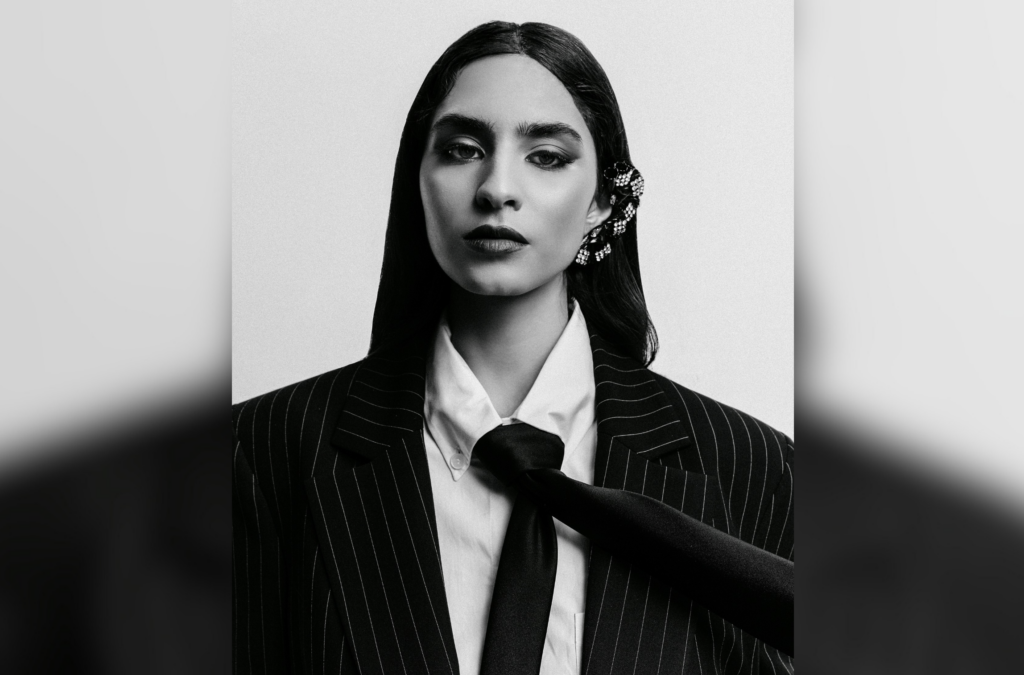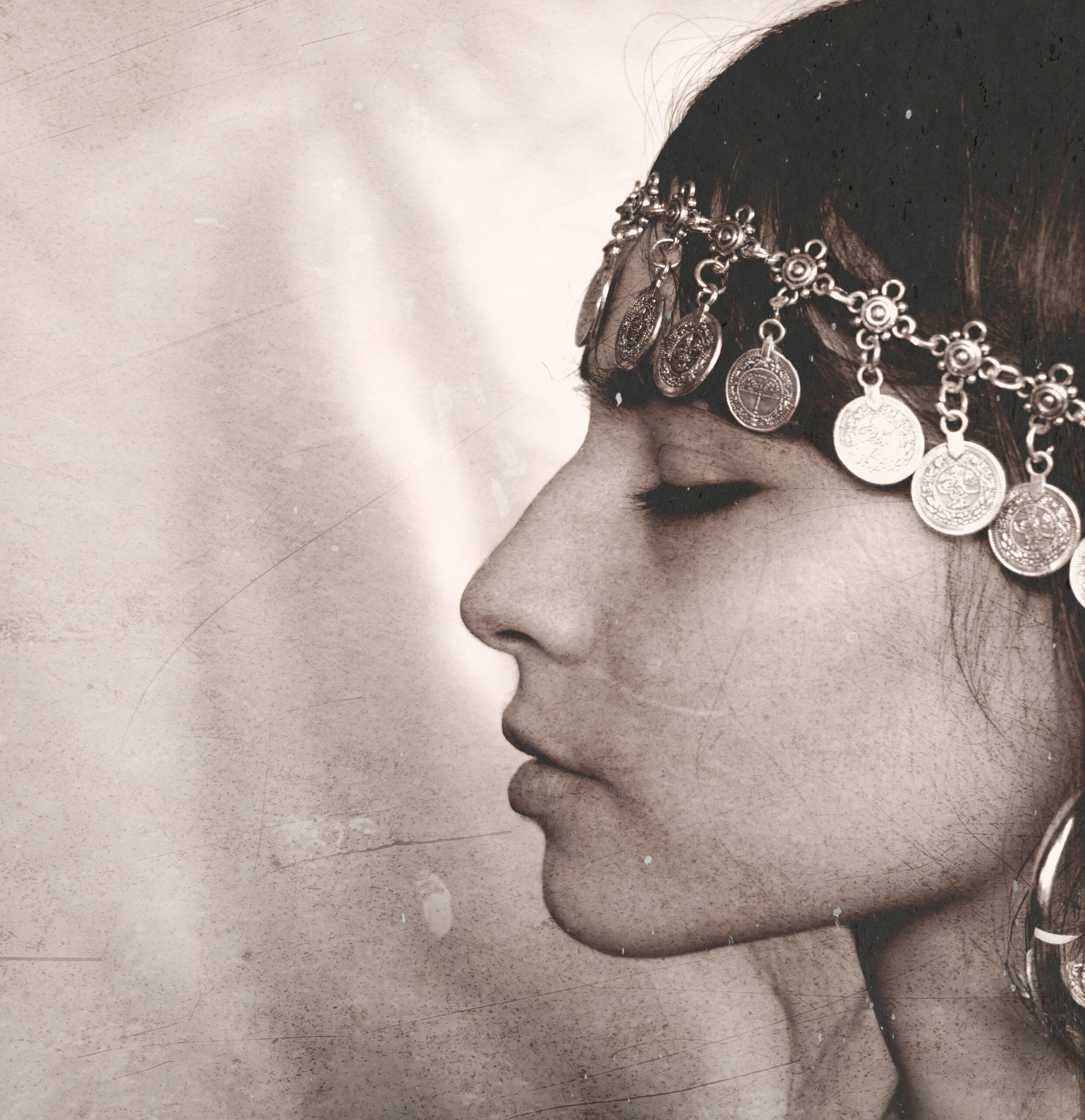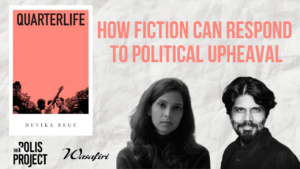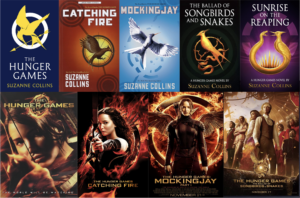
Discovering Tara: Music with Palestinian Origins and Political Meaning

Tamara Al Zool, or Tara, is 21. She’s been making music since a young age, even though she decided to publish it only in the last few years—when she “felt ready”, in her words. She has become known recently due to her participation in the 2024 Italian edition of the song contest X Factor. Tara has further been recognized because of her unique style that mixes R’n’B with pop, and using the two languages that make up her identity— Italian and Arabic.
Born and raised in Italy, her origins are from Palestine since her parents are both from there. She belongs to a Palestinian diaspora in Italy that amounts to around 1,400 people, out of five million migrants from all over the world. Tara has been very clear about belonging to such a diaspora, making it a distinctive character in her music. She is a musician with a message.
For example, Tara just released an Arabic version of the antifascist Italian song “Bella ciao”, which was a resistance song against the Nazis, drawing a parallel between the martyrs in Palestine and the Italian “martyrs” (partigiani) in Italy who fought fascism in the 1940s.
Tara repeatedly refers to her music as a political act, just like she did with her latest song “Dunya”. “It is a piece of work that describes recent times’ dystopia, a world where it is easier to be indifferent and have our eyes and ears closed towards any injustice”, she wrote in now now-deleted promotional Instagram post.
“They are used to an environment that shapes freedom / Censorship and sacrality / Genocide and morality / Martyres in the indifference / A saint complicity,” she sings.
I discovered Tara when I was watching the Italian version of a music talent show, where she performed wearing a keffiyeh, and explicitly stated that her reason to be there was to be “a representation” of the Palestinian diaspora. I did not expect such an attitude to be allowed in a TV show, especially in Italy, and it surprised me.
We then met on a Zoom call, where she explained her music and her concept of art, what work means to her, and what her project is. What follows is the edited transcript of our conversation.
Miriam Viscusi: Can you tell us how your Palestinian identity is present in your work?
Tara: I naturally started to make music. However, it all started with fear. Expressing concepts of my identity in a natural way was not immediate. But after some time, I’ve become aware.
In 2020, when I noticed I was aligning with some external model, homologating, something changed. I realized I was not satisfied with my work, because I was not showing what I really meant and what I really had inside. And this was related to my identity and representation. In 2021, I had a clearer idea, and I built my small team. I am now doing “Arab’n’B”, which conjugates Arab music and R’n’B.
Art can be political, and send political messages.
MV: How relevant is the use of language in your songs? What is your relationship with your two languages, Arabic and Italian?
T: When it comes to languages, I think in two languages and sometimes this can be frustrating, for example, when you don’t remember a word in either of them. I am using a mix of the two in a very natural way. It is not something I force; it’s just the way I have always expressed myself.
In my songs, there are specific topics: censorship, Palestine, and genocide. I talk explicitly about those topics because I want to tell you what the reality is. I know it is difficult as an artist to have such a [political] attitude, but I think it is necessary and few people treat these issues in a deep manner.
MV: What about the topic of representation and how it is important for you?
T: My art is focused on my origins, but it is also directed to people from my generation and second-generation Italians. In my opinion, some issues that could interest this target have not been treated by music in a deep enough way. The representation of minorities and second-generation migrants is key. While other categories or realities feel represented in art, many others are never shown. They are discriminated against as if their voice has no value.
Even if it is not like this, it is my perception: some parts of society are not felt, heard, or shown. They are not perceived. Especially when it comes to the so-called “Arab world”, there is a lack of representation, and when there is a presence or a mention of it, it is always wrong, and full of taboos and stereotypes.
MV: How did you feel last year, being in Italy as a Palestinian?
T: In the last year, I watched people having trouble saying things out loud, and I lost faith in many that I had previously considered artists. They had no sensitivity or empathy in communicating what was happening. On the other hand, I think some walls can collapse when you find people who work in the music industry who want to be part of a new movement.
My idea is to talk to an international public, because my movement is directed to the world diaspora. In this sense, I used my participation in the talent show X Factor to send messages to a widespread public. TV can be terrifying and fascinating at the same time, but I could speak my values on television at a moment when my posts on social media were censored. It is crazy the media attention that Palestine received in the last year. However, it has to be mentioned that this violence did not start on the 7th of October. The genocide started before.

MV: What is your relationship with fans and social media?
T: I have a positive relationship with my fanbase, and many send me messages. However, the most important feedback is to feel that I am representing some minorities. I use social media to amplify my art and, above all, my messages. For example, I created a video series where I talk about Arab and Palestinian culture (“Palestinian pills”) and what it is to be an Arab citizen and artist in Western countries.
MV: What about your music inspirations?
T: My musical environment is quite varied: I am inspired by so many different things. First of all, R’n’b from the 2000s, but I also appreciate Italian songwriters. I can recommend Sairouz, Saint Levant and Tul8. Tul8 sings in Arabic.
MV: What do you hope to communicate to your listeners about what it’s like being in the Palestinian diaspora?
T: I wish people to feel what it means to carry a homeland inside you, even when you can’t physically be there. Being Palestinian in the diaspora is a constant mix of pride, loss, and hope.
MV: What kinds of responses and feedback have you gotten for your recent, more political songs?
T: It’s been emotional since many people have reached out, saying they finally feel seen. Of course, not everyone agrees, and somehow, a political aura around my persona has been created, but the truth has to be spoken.
MV: What do you hope to do in the future as your fan base grows?
T: I want to build more than just a fanbase; I want to create a community. A place where people like me, people from all backgrounds, feel represented and heard. I want to keep growing, but always stay true to my roots.





